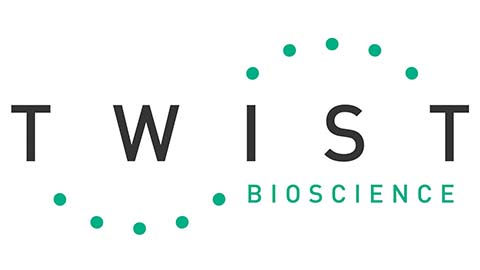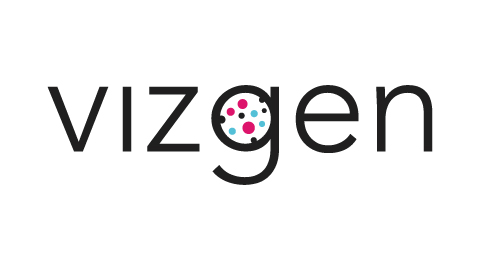
Sebastian Eustermann
EMBL Heidelberg
Germany
EMBL Course
Purified proteins are used in various types of scientific experiments and fields. For example, in structural biology insights into the functional mechanisms can be obtained by elucidating the 3D molecular structure of proteins and protein complexes using technologies such as X-ray crystallography, cryo-EM and NMR. In biochemistry and biophysics, interactions with other proteins, nucleic acids and small molecules can be studied by determining affinities and specificities. Proteins can function as antigens to generate specific antibodies or as reagents in cell biology experiments. Furthermore, recombinant proteins can be used as tool molecules in genomics, chemical biology and microscopy assays. In order for these experiments to produce reliable and biologically relevant results, they must be performed using high-quality proteins that are active, properly folded, in the right oligomeric state and contain correctly inserted co-factors. Ensuring that these parameters are fulfilled requires quality control.
In this course, we want to help the participants to become acquainted with the concept of protein quality control and provide them with an overview of the specific protein requirements for various downstream applications. Different techniques that can be applied for this purpose will be introduced and participants will have the opportunity to get hands-on experience with these technologies.
This course is aimed at life science researchers of all levels, who are using or plan to use purified proteins in their wet lab experiments, but who do not necessarily have a strong background in protein production and characterisation methods. We will focus on introducing protein quality control methodologies in order to improve the reliability and reproducibility of data obtained from experiments that make use of purified proteins. After this course, participants should be familiar with the biochemical and biophysical techniques that can be applied to ensure that they are working with high-quality protein samples suitable for the planned downstream experiments.
Basic information
Purity and intactness
Homogeneity/polydispersity
Folding state and conformational stability:
Activity
During the course, specialists from both academia and industry will work closely together to introduce technologies frequently used in protein quality control. Some of these methodologies can be utilised both to assess protein quality and as standalone biophysical characterisation techniques.
Our main goals are:
“This advanced course was my first “live” experience at the EMBL and it was superb. It was packed with great lectures, state-of-the-art technology, fruitful discussions, and beautiful people. The course was also a great opportunity to meet new people and expand your network. Highly recommend and I will definitely attend the next event.” – Klemen Mezgec, National Institute of Chemistry Ljubljana, Slovenia

EMBL Heidelberg
Germany

Wyatt Technology
Germany

Wyatt Technology
Germany

EMBL and University of Bayreuth
Germany

NanoTemper Technologies
Germany

Refeyn
UK
FidaBio
Denmark
NanoTemper Technologies
Germany

EMBL Heidelberg
Germany

Biophysics Platform, Insitut de Biologie Structurale, Grenoble
France

Max Planck Institute of Biophysics,
Germany

Refeyn
UK

Institut Pasteur
France

EMBL Heidelberg
Germany

EMBL Heidelberg
Germany

Malvern Pananalytical
UK

Refeyn
UK
Wyatt Technology
Germany

Protein Technologies Core Facility, Vienna BioCenter
Austria
FidaBio
Denmark

Malvern Pananalytical
UK

EMBL Heidelberg
Germany

EMBL Heidelberg
Germany

Institut Pasteur
France

Course and Conference Team Lead
EMBL Heidelberg
Germany

Scientific Training Officer
EMBL Heidelberg
Germany
Are you on social media? Post using #EMBLProteinQC and don’t forget to tag @EMBLEvents
| Time (Europe/Berlin) | Speaker | Location |
|---|---|---|
| 08:20 – 08:50 | Bus from Premier Inn Hotel to EMBL | Premier Inn City Center Hotel bus stop |
| 09:00 – 09:45 | Welcome, house notes, course overview Karine Lapouge – EMBL Heidelberg, Germany Kim Remans – EMBL Heidelberg, Germany | Courtyard Room A & B |
| 09:45 – 10:00 | Tour de table | Courtyard Room A & B |
| 10:00 – 11:00 | Flash talks (20 students); 3 minutes each | Courtyard Room A & B |
| 11:00 – 11:30 | Coffee break | Courtyard Room A & B |
| 11:30 – 11:50 | FidaBio introduction Stephan Koetzner – FidaBio, Denmark Peter Spies – FidaBio, Denmark | Courtyard Room A & B |
| 11:50 – 12:10 | Malvern introduction Agatha Rosenthal – Malvern Pananalytical, UK Bernd Tartsch – Malvern Pananalytical, UK | Courtyard Room A & B |
| 12:10 – 12:30 | NanoTemper introduction Marijke Jansma – NanoTemper Technologies, Germany Arpita Kundu – NanoTemper Technologies, Germany | Courtyard Room A & B |
| 12:30 – 13:30 | Lunch | EMBL Canteen |
| 13:30 – 13:50 | Refeyn introduction Sebastian Joecks – Refeyn, UK Jan Schaeferkordt – Refeyn, UK | Courtyard Room A & B |
| 13:50 – 14:10 | Wyatt introduction Felix Gloge – Wyatt Technology, Germany David Golonka – Wyatt Technology, Germany Sascha Schifrin – Wyatt Technology, Germany | Courtyard Room A & B |
| 14:10 – 15:00 | Lecture 1: Assessing and improving protein sample quality Betrand Raynal – Institut Pasteur, France | Courtyard Room A & B |
| 15:00 – 15:30 | Coffee break | Courtyard Room A & B |
| 15:30 – 18:30 | Practical session 1 All trainers | Training Lab A & B |
| 18:30 – 20:00 | Dinner | ATC Rooftop Lounge |
| 20:00 – 20:30 | Bus from EMBL to Premier Inn Hotel | EMBL bus stop |
| Time (Europe/Berlin) | Speaker | Location |
|---|---|---|
| 08:20 – 08:50 | Bus from Premier Inn Hotel to EMBL | Premier Inn City Center Hotel bus stop |
| 09:00 – 09:10 | Overview of the day | Courtyard Room A & B |
| 09:10 – 10:00 | Lecture 2: An overview of protein expression and purification methods for obtaining high-quality protein samples Kim Remans – EMBL Heidelberg, Germany | Courtyard Room A & B |
| 10:00 – 10:30 | Coffee break | Courtyard Room A & B |
| 10:30 – 11:20 | Lecture 3: Spectroscopy Methods for Protein Quality Control Arthur Sedivy – Protein Technologies Core Facility, Vienna BioCenter, Austria | Courtyard Room A & B |
| 11:20 – 12:10 | Lecture 4: Analytical Ultracentrifugation for samples characterization and quality control Caroline Mas – Biophysics Platform, Insitut de Biologie Structurale, Grenoble, France | Courtyard Room A & B |
| 12:10 – 13:10 | Lunch | EMBL Canteen |
| 13:10 – 16:30 | Practical session 2 All trainers | Training Lab A & B |
| 16:30 – 17:00 | Coffee break | Courtyard Room A & B |
| 17:00 – 17:50 | Preparation time for group presentations | Courtyard Room A & B |
| 17:50 – 18:45 | Tour Protein Expression and Purification Core Facility (PEPCF) | PEPCF EMBL |
| 18:45 – 19:15 | Bus departure to downtown | EMBL bus stop |
| 19:30 – 00:00 | Downtown dinner |
| Time (Europe/Berlin) | Speaker | Location |
|---|---|---|
| 08:20 – 08:50 | Bus from Premier Inn Hotel to EMBL | Premier Inn City Center Hotel bus stop |
| 09:00 – 09:10 | Overview of the day | Courtyard Room A & B |
| 09:10 – 12:10 | Practical session 3 All trainers | Training Lab A & B |
| 12:10 – 13:15 | Lunch | EMBL Canteen |
| 13:15 – 14:05 | Lecture 5: Protein quality control and cryoEM for membrane proteins Melanie McDowell – Max Planck Institute of Biophysics, Germany | Courtyard Room A & B |
| 14:05 – 15:00 | Lecture 6: Mass spectroscopy methods used in protein characterisation and quality control Mandy Rettel – EMBL Heidelberg, Germany | Courtyard Room A & B |
| 15:00 – 15:30 | Coffee break | Courtyard Room A & B |
| 15:30 – 18:30 | Practical session 4 All trainers | Training Lab A & B |
| 18:30 – 20:00 | Dinner | Courtyard Room A & B |
| 20:00 – 20:30 | Bus from EMBL to Premier Inn Hotel | EMBL bus stop |
| Time (Europe/Berlin) | Speaker | Location |
|---|---|---|
| 08:20 – 08:50 | Bus from Premier Inn Hotel to EMBL | Premier Inn City Center Hotel bus stop |
| 09:00 – 09:10 | Overview of the day | Courtyard Room A & B |
| 9:10 – 10:00 | Lecture 7: Cryo-EM Sebastian Eustermann – EMBL Heidelberg, Germany | Courtyard Room A & B |
| 10:00 – 10:50 | Lecture 8: NMR as a tool for protein quality control Janosch Hennig – EMBL Heidelberg & University of Bayreuth, Germany | Courtyard Room A & B |
| 10:50 – 11:15 | Coffee break | Courtyard Room A & B |
| 11:15 – 12:15 | Discussion practical 1 | Courtyard Room A & B |
| 12:15 – 13:15 | Lunch | EMBL Canteen |
| 13:15 – 14:15 | Discussion practical 2 | Courtyard Room A & B |
| 14:15 – 15:15 | Discussion practical 3 | Courtyard Room A & B |
| 15:15 – 16:15 | Discussion practical 4 | Courtyard Room A & B |
| 16:15 – 16:30 | Feed-back and closing remarks | Courtyard Room A & B |
The course is limited to 20 participants. For selection purposes, please note that your application will not be considered without a letter of motivation.
Registration fees include admission, course materials, meals and coffee breaks. Participants are expected to book and pay their own accommodation and travel expenses.
| Academia | €715 |
| PhD Student | €715 |
| Industry | €1225 |
A letter to support your visa application will be issued, on request, once payment of the registration fee is confirmed. We recommend that you book your visa appointment as soon as possible, to avoid any delay with your visa application.
The registration fee should be paid only after acceptance to the course. The results will be announced approximately 2-3 weeks after the application deadline.
After you have logged in and successfully registered, you will receive an email asking you to submit your motivation letter. Click on the link provided and enter your motivation letter in the text box provided. Alternatively you can submit your motivation letter by clicking on the link on the confirmation page directly after registering.
Instructions
Please note:
For detailed instructions, please watch our video on how to submit a course motivation letter.
For further information about registration and motivation letter submission please refer to the FAQ page.
Limited financial assistance is provided by the EMBL Advanced Training Centre Corporate Partnership Programme and EMBO in the form of registration fee waivers, travel grants and childcare grants.
Your place in the meeting is only confirmed by paying the registration fee, which is mandatory even when receiving a fee waiver.
The fee waiver will cover the registration sum that you have paid to attend the course.
The travel grant will cover the cost of travel (airfare, train, bus, taxi, accommodation, visa, and/or registration fees*) and is provided up to specified caps which are normally as follows:
– up to €400 for participants travelling to an EMBL Course within Europe.
– up to €1000 for participants travelling to an EMBL Course from outside Europe.
– up to €500 for any participant travelling to an EMBO Practical Course.
– up to €1000 for any participant working in Chile, India, Singapore or Taiwan travelling to an EMBO Practical Course.
– up to €700 for any participant working in Croatia, Czech Republic, Estonia, Greece, Hungary, Italy, Lithuania, Luxembourg, Poland, Slovenia, and Turkey travelling to an EMBO Practical Course.
*Registration fees are only covered for EMBO Practical Courses
The organisers may reduce the grant cap to accommodate more participants. Recipients will be notified of their travel cap amount when they are informed of the outcome of their application. Original receipts must be provided with your signature for all costs incurred within two months of completion of travel. Scanned copies cannot be accepted.
There is the possibility to apply for a childcare grant to offset child care costs incurred by participants, speakers, trainers and organisers when attending a course. Eligible costs include (but are not limited to) fees for a babysitter or child-care facility and travel costs for a caregiver. Please note that priority will be given to early-stage researchers. There is a limited amount of funding available for the childcare grants and funds will be distributed amongst eligible applicants.
Applies to selected courses only. Availability will be indicated during the motivation letter submission process.
This grant covers costs related to your attendance at the course (registration, travel and accommodation costs). The grant is restricted to PhD students and postdocs who conduct basic biomedical research.
Whether you are eligible to apply for a travel grant, depends on when you received your university entrance qualification (e.g. Abitur, A-Levels, High School Diploma, Final State Examination):
– for PhD and MD students, as well as graduates, the university entrance qualification must not have been obtained more than 11 years ago at the time of the envisaged course
– for postdocs, the university entrance qualification must not have been obtained more than 13 years ago at the time of the envisaged course
You may apply for financial assistance when submitting your motivation letter for courses. In your application, you will be asked to answer questions regarding why your lab cannot fund your attendance and how your attendance will make a difference to your career. Application for financial support will not affect the outcome of your registration application.
For the Boehringer Ingelheim Fonds Travel Grant, there is a pre-application question during the motivation letter submission process, and if selected you will be requested to complete a standard form and documentation consisting of your travel expense estimation.
The scientific organisers will select the recipients of all financial assistance during the motivation letter selection process. Results will be announced approximately 6-8 weeks before the event start date, however for some events this may be delayed. Selection results do not impact your admission to the course. Selection is based on scientific merit, your current work or study location, the reasons for needing financial support, and the impact this event will have on your career.
Costs will be reimbursed after the meeting only once a reimbursement form and original receipts (from travel costs) have been received.
See our list of external funding opportunities and for further information about financial assistance please refer to the FAQ page.
For travel information, please see here.
If you are travelling to the conference within Germany then you are eligible for the Deutsche Bahn ‘Event Ticket’ (called the ‘Veranstaltungsticket’ in German). This will result in a lower ticket price if your travel distance to Heidelberg is more than 100 km. You need to provide proof of your event attendance when purchasing the ticket.
For more information in English see here or in German see here.
You can book your ticket here.
Accommodation is not included in the registration fee. Participants are expected to book and pay for their own accommodation. A mix of single and twin rooms have been reserved for 4 nights (19 – 22 March 2024) at the Premier Inn Hotel City Centre Heidelberg. Single rooms are limited and will be available on a first come, first served basis. After the selection process, selected participants should contact the hotel directly to make a booking with a booking code (code of your course e.g. PQC24-01) by the deadline of 20 February 2024. We recommend that all course participants stay in the dedicated hotel for the course.
Shuttle buses will go from the Hotel to EMBL and back, mornings and evenings. A bus schedule and location of the bus stops will be made available prior to the meeting.
Address: EMBL Heidelberg, Meyerhofstraße 1, 69117 Heidelberg, Germany
For more information about accommodation and travel, please refer to the FAQ page
For travel information, please see here.
If you are travelling to the conference within Germany then you are eligible for the Deutsche Bahn ‘Event Ticket’ (called the ‘Veranstaltungsticket’ in German). This will result in a lower ticket price if your travel distance to Heidelberg is more than 100 km. You need to provide proof of your event attendance when purchasing the ticket.
For more information in English see here or in German see here.
You can book your ticket here.
All meals and coffee breaks are included in the registration fee. Our catering staff will prepare a wide variety of vegetarian meals, meat and fish dishes, soups, pasta, fresh fruit and vegetables, as well as a variety of desserts.
Please wear your badge at all times when serving yourself.
No food or drinks are allowed in the laboratories.
In most places the electricity is 220 volts AC (50 cycles). An adaptor and a plug that fits the German socket may be needed for your appliances/laptop (i.e. American, Japanese, etc.). A USB charging station for electronic devices is available at the registration desk.
If you are interested in purchasing EMBL merchandise (products presented in the glass display in the registration area), please email the EMBL shop to place an order or get in contact with your Course Organiser.
Kindly note the EMBL shop is only open upon request and all purchases must be made in cash (Euros only).
Please read EMBL’s COVID-19 safety policy for on-site events.
Do not smoke in any EMBL building.
Eating and drinking is prohibited in all laboratories.
Do not enter any restricted areas or the laboratories unless instructed to do so.
If first aid is required …
In case of fire …
Beyond first aid…
Please remember to bring your own medication, if needed, to the conference. Note that the next pharmacy is a 4-minute drive from the EMBL, but for many medications you will be required to see a doctor to get a prescription.
Ensure in advance that your medical insurance will cover you during your visit in the event that you do need to see a doctor while in Heidelberg. In any case, the EMBL Course and Conference Office will assist you to get to the pharmacy and a doctor of your choice if necessary.
Wi-Fi is available on campus. Log in using the EMBL-Events network and the event specific password, which will be provided on site. The eduroam network (secure, worldwide roaming access service developed for the international research and education community) is also available.
‘’Lost and Found’’ items are kept at the registration desk until the end of the conference.
There are lockers available on-site to store your luggage, which require a 2 EURO coin to operate. There is another luggage room on level E0, which is free to use but remains unlocked during the conference.
There is a nursing room available in the ATC Rooftop Lounge on level A29.
During the conference, an EMBL Photographer may be taking photos. If you would not like to appear in these, please inform the photographer or a member of the Course and Conference Office.
We can help to print your boarding pass/train ticket. Please send it to events@embl.de and collect your print-outs at the registration desk.
There is a room for prayer, meditation, and yoga located on level E0 behind the Auditorium. Please be respectful of others using the room.
A variety of activities in Heidelberg can be found on the website of Heidelberg Marketing.
During the event, we provide conference shuttle buses to and from EMBL. In addition, there is the public bus 39A that serves the EMBL campus and taxis can be easily booked at any time. Information on the shuttle buses can be found on the individual event website and more detailed information on travelling to EMBL can be found on our Travel Information page.
Address: EMBL Heidelberg, Meyerhofstraße 1, 69117 Heidelberg, Germany
Please find additional information including FAQs, terms and conditions, COVID-19 safety policy and travelling to EMBL on our Information for Participants page.
The EMBL eCampus learning platform will be used to collaborate, communicate and network with all of the course participants. All participants will receive information on how to join shortly before the course. We recommend using Chrome, Safari or Mozilla Firefox browsers for eCampus.
Sponsorship opportunities
We offer a variety of event sponsoring possibilities, with the flexibility to select a set sponsorship package or combine individual sponsorship options to suit your event budget. Discounts are available for companies sponsoring multiple events at EMBL Heidelberg. View other events, or contact sponsorship@embl.de for further information.
If you are interested in becoming a media partner of this event, please visit our media partnerships webpage.
EMBL wishes to warn sponsors of EMBL conferences and courses of fraudulent schemes purporting to offer sponsorship opportunities on behalf of EMBL or affiliated with EMBL officials. One current scam campaign of which we are aware is conducted using the name ‘Judy Eastman’ (judy@gopcontact.a2hosted.com) and entails approaches to sponsors offering sponsorship opportunities on EMBL’s behalf. Please be kindly advised that all relevant communication regarding sponsorship of EMBL conferences, symposia and courses is handled by EMBL directly and is sent from an official EMBL account. EMBL does not work with any external providers on sponsorship acquisition.
Please also note that:
Suspicious communications purportedly from, for or on behalf of EMBL should be reported to EMBL at the following email address sponsorship@embl.de.
Want to let others know you’re attending this event? Take a look at our shareable media and feel free to use them in your social media channels or presentations.
Date: 19 - 22 Mar 2024
Location: EMBL Heidelberg
Venue: EMBL Advanced Training Centre
Deadline(s):
Registration: Closed
Organisers:
Contact: Maria Bacadare
EMBL Courses and Conferences are kindly supported by our Corporate Partnership Programme
















